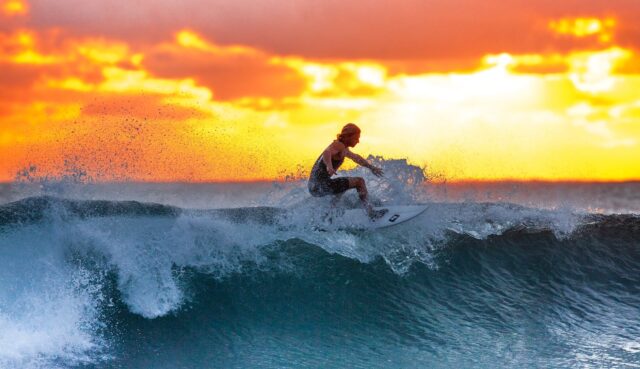
Planning to surf, but don’t know where to start? Don’t worry, you’re not alone. There’s a lot of people willing to surf, but they’re lost and not sure where to start. That’s why we’ve collected all the surfing essentials for beginners. This way you will know what gear to buy and how you can start your surfing career. Just like any other sport, surfing requires specific gear in order to start your surfing lessons and be a professional. The surfing essentials for any beginner is not complicated. All you’ll need is a good surfing board, leash, wetsuit, and surf wax, along with a professional instructor to teach you how to surf.
Surfing Essentials for Beginners
1. Professional Instructor
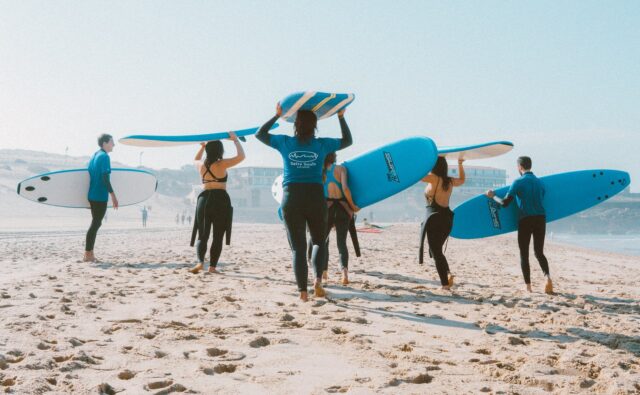
After hours of research and watching tutorials, you might think that it’s easy to start surfing all by yourself, but by doing this you’re putting yourself in danger. Surfing is easy when compared with other water sports, still, you should find an experienced surfer to teach you. No matter how many videos you’ve watched, there are a lot of technicalities you’re not aware of, and guidelines can differ from one place to another. So, when you’re planning to surf, search for a good teacher that has a lot of positive reviews or you can check Ombe for more help. You can ask your friends or other surfers for recommendations.
2. Surfboard
Everyone knows that a surfboard is the most important piece of equipment; choosing the right one for you could be a bit challenging. You may have heard of the beginner’s rule that the longer the board, the better. It’s true that longboards give more stability and are easier to surf with. However, there is more the length of the board to consider.
For your first surfboard, consider purchasing one that’s over 8 or 9 inches based on your preference. Elaborated more on this post is the top of the surfboard itself, which is a vital factor that you should consider. It could be soft or foam, or hard-topped. A lot of people will recommend soft or foam top surfboards for beginners as they assist you in catching waves as you surf and reduce the risk of injury if you fall off the board. However, foam top is perfect for surfing lessons or if you’re an irregular surfer, but it is not the best for regular use and long-term progression. If you’re willing to continue your surfing career, a foam board will be ideal for you and will increase your learning curve, but you’ll have to replace it after a while.
Hard topped boards are ideal if you’re going to be surfing a lot. However, they have to be waxed regularly, which means that you’ll have to buy the wax and know how to properly use it. Hard topped boards are not recommended for beginners as they could cause injuries if you fall and the board may break if you’re not taking care of it. If you prefer a hard top board, you should consider getting a durable one with high-quality material so it can handle your learning curve.
3. Wetsuit
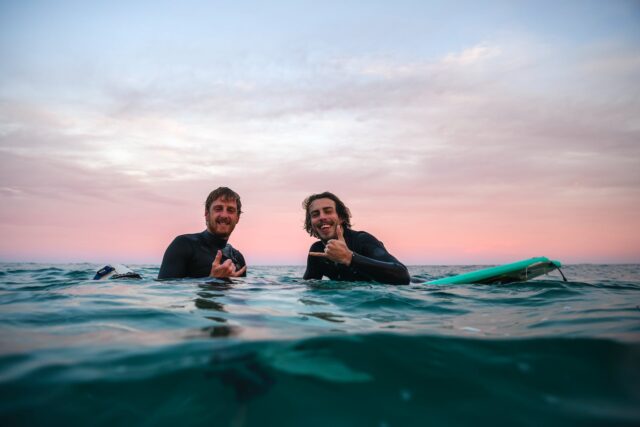
If you’re looking for a good-looking wetsuit, you will find different prices for materials. So, before searching for wetsuits set a certain budget so you don’t exceed it. The material of the wetsuit will depend on the weather and temperature of the water you’re surfing in. If the temperature of the water is 65 degrees or more, a wetsuit will not be necessary. At lower temperatures, the wetsuit will be important; the lower the temperature the thicker the wetsuit should be. So put the weather and your budget into consideration before purchasing a wetsuit.
4. Leash
A surf leash can save your life, so don’t underestimate this piece of surfing gear. Before you start your surfing lessons, purchase a leash that has the same length as your surfboard so it can allow you to move freely if you fall off. Short leashes might limit your movement when you fall, and the surfboard might hit you causing serious injuries. You will also need to get swivels along with your leash as they prevent the leash from getting tangled around your leg.
5. Earplugs
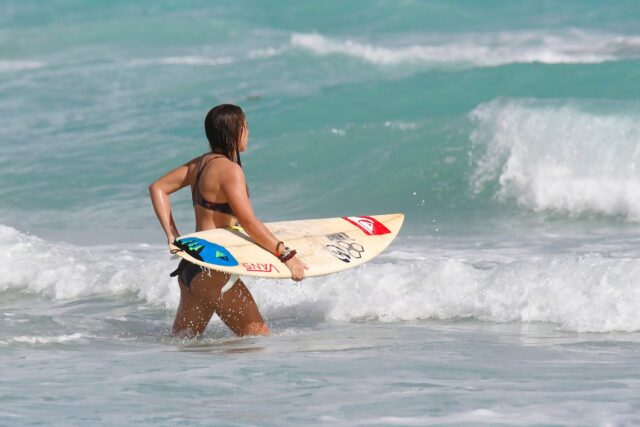
For those who are planning to surf in low-temperature water, earplugs are a necessity. You might be okay with surfing in cold water without earplugs, but this could damage your hearing over time. Coldwater can cause small bones to grow in your ear channel, which leads to infection or loss of hearing. This damage can only be cured through surgery, so it’s better to avoid this risk and use earplugs while surfing.
6. Surf Travel Bag
If you’re going to be moving with your surfboard from one place to another or traveling with it, then you should consider getting a surf travel bag. Although it might be a bit expensive, getting a surf travel bag will protect your surfboard from any damage.
7. Sunscreen
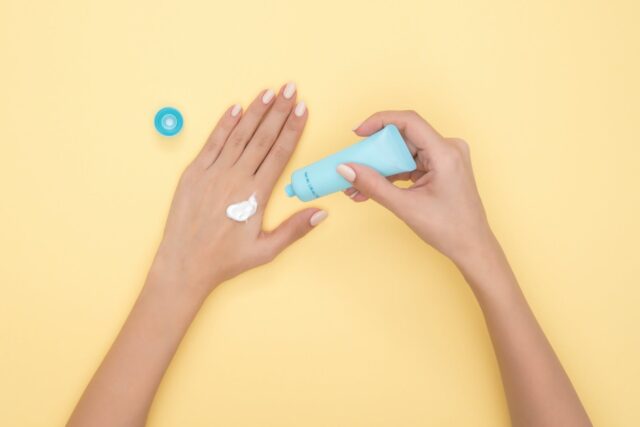
Many surfers may underestimate putting on sunscreen, but sunscreen is an essential thing for surfers to avoid putting themselves at the risk of getting skin cancer or sunburns. As a surfer, you’re exposed to direct sun rays for many hours, so you need to put it into consideration and always carry sunscreen in your bag.
8. Surf Wax
Having a high-quality surf wax will reduce the chances of you slipping off your surfboard. The wax adds an extra layer where your feet should be, keeping you balanced and stable on the board. The type of wax you choose should match the temperature of the water you’re surfing in because high-temperature water requires specific wax.
Surfing is indeed a fun activity, but as a beginner, there are a lot of things that you should keep in mind. Once you plan on getting the essential gear for surfing, you should ask as many professional surfers as you can for their tips. That way you’ll be able to collect enough reviews about what to consider in the suit material and what brands will be ideal for you. To increase your surfing progress, consider doing some warm-ups before you surf to avoid muscle cramps. After the warm-ups, check that all your gear is in perfect condition.







